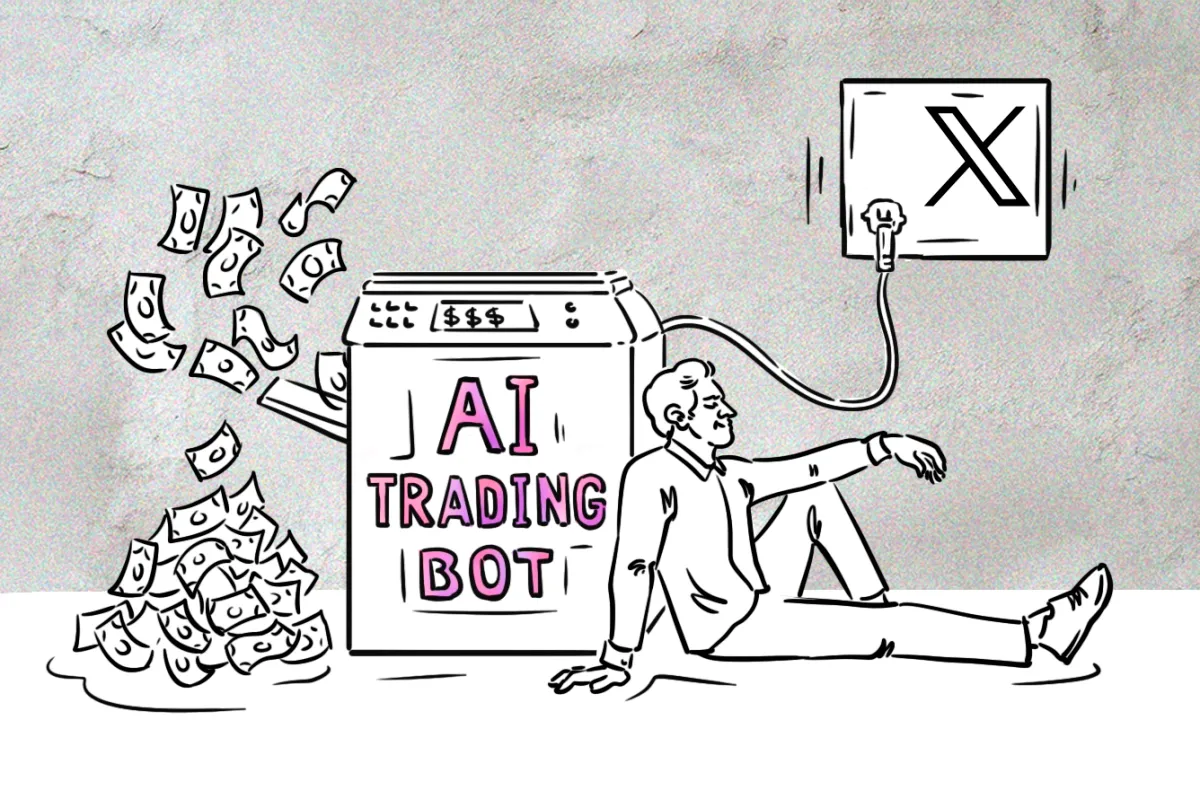
Recently, we have Observed a rising interest in AI-powered crypto trading bots. In fact, nowadays, it seems that anything with an AI connection creates a huge buzz, even if it is far from being as efficient as it promises. Is this also the case for the trading bots?
AI and machine learning technologies can allegedly ‘train’ automated trading bots, programs that use predefined algorithms to execute orders automatically. Smart technologies supposedly work with big data and develop strategies based on predictive analysis to trade more efficiently and maximize profits. The existing ‘AI-backed’ bots do not share information on how exactly they use the technology, and there are no reliable statistic to prove their efficiency, but the bots’ popularity is indisputable. According to Valuates Reports, the Global AI Crypto Trading Bot Market was valued at $21.69 million in 2022 and is anticipated to reach $145.27 Million by 2029.
The Commodity and Futures Trading Commission’s (CFTC) Office of Customer Education and Outreach recently recommended that the public should beware of artificial intelligence scams, specifically trading platforms that claim to use AI in their algorithms and promise great yields. The “AI Won’t Turn Trading Bots into Money Machines” advisory reminds investors that even such technology cannot predict the future and gives basic recommendations on how to avoid being scammed.
“When it comes to AI, this advisory is telling investors, ‘Be wary of the hype.’ Unfortunately, AI has become another avenue for bad actors to defraud unsuspecting investors,” - CFTC’s OCEO Director Melanie Devoe
The CFTC is not the only agency worried about the impact of the AI buzz. At the beginning of February, the SEC sued Brian Sewell and his company, Rockwell Capital Management, who provided an online crypto trading course, the American Bitcoin Academy. He encouraged students to invest in his hedge fund, which would use artificial intelligence and machine-learning technologies to predict price behavior in crypto-asset markets, thus generating higher returns. The technology allegedly has never existed, the fund was never launched, and Sewell received around $1.2 million from his students that were later 'stolen' from his wallet.

The fraud charges were promptly settled, as Sewell agreed to return the money and pay a penalty without admitting or denying his fault. While everything was resolved on this occasion, it gives a great example of how the hype around new technologies can be used for fraud.
“Whether it’s AI, crypto, DeFi or some other buzzword, the SEC will continue to hold accountable those who claim to use attention-grabbing technologies to attract and defraud investors,” - Gurbir S. Grewal, Director of the SEC’s Division of Enforcement.
One year ago, we Observed that the explosion of AI hype connected to the launch of ChatGPT attracted the interest of scammers. It is a shame that bad actors continue to use the new powerful technologies this way, but the coin always has two sides. For example, we have also seen that deep learning models could be used to identify vulnerabilities in smart contracts and that AI-related crypto projects provide the market with helpful solutions and further push its development.
It is likely that we will continue to witness AI-related scams until (unless) the buzz dies down a little and the defrauders move on to the next big thing, so take good care of your investments, and always be wary of a '100% guaranteed enormous profit.'

